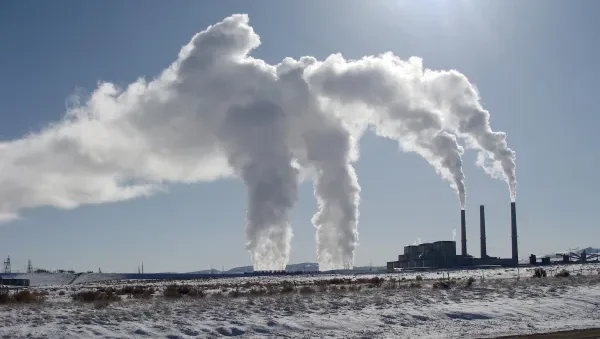
When it comes to transitioning from fossil fuels to clean energy, rural electric cooperatives often get stuck in neutral.
These small, member-owned utilities provide power to more than 40 million Americans in rural areas and suburbs that aren’t served by investor-owned or municipal utilities, according to the National Rural Electric Cooperative Association. Many face unique financial, cultural and political barriers that have made it hard to move beyond coal and gas.
But for the past five years, environmentalists have been quietly working with co-op leaders to change that status quo, E&E News reports. A series of meetings between the two camps has helped many find common ground in the clean energy transition, like when Colorado environmentalists and Tri-State Generation and Transmission agreed that the coal-heavy co-op should seek federal funding to move past fossil fuels.
And now, that request is a success. Tri-State is one of 16 co-ops getting a piece of $7.3 billion from the Biden administration to help them purchase clean power or build it themselves. The Inflation Reduction Act funding is expected to unlock enough clean electricity to power an estimated 5 million rural households.
Another winning bidder comes from Ohio, where Buckeye Power will deploy renewables and energy storage as coal generation shuts down.
Read all the details about how a co-op/environmentalist collaboration turned into federal funding in this Energy News Network report from the archives.
🎓 Fossil fuels hit the books: A peer-reviewed study documents how oil and gas companies have “embedded” themselves at colleges and universities through donations, sponsored scholarships, and seats on governing boards, with researchers concluding academic integrity is “at risk.” (Floodlight, The Guardian)
☀️ Supercharging U.S. solar: The anticipated launch of Hanwha Qcells’ end-to-end solar factory in Georgia is expected to supercharge the U.S. solar supply chain, which has already quadrupled in the two years since the passage of a federal climate package. (Canary Media)
🔌 Politically charged: Unionized workers at an Ohio electric vehicle battery manufacturing plant lament the partisan divide over EVs, noting that the industry has helped preserve good-paying jobs. (Inside Climate News)
🏭 LNG fight continues: Gulf Coast residents and environmental groups turn to federal courts to try to block a wave of liquified natural gas export facilities they say haven’t been adequately vetted for their potential impacts on environmental justice, greenhouse gas emissions, fisheries and more. (Floodlight)
🛢️ Oil taps the climate law: Oil and gas producers plan to take advantage of a tax credit in the landmark federal climate package to inject carbon dioxide to squeeze more oil from the ground, but critics warn about a lack of federal oversight and uncertainty about the practice’s effectiveness. (E&E News)
🏠 Passive housing, aggressive efficiency: Some affordable housing developers embrace Passive House building standards that make homes highly energy-efficient with only slightly higher upfront costs. (Energy News Network)
🌬️ Wind’s PR nightmare: Vineyard Wind’s broken turbine blade, misinformation campaigns and a lack of forthrightness from offshore wind developers is causing a “public relations nightmare” for the industry. (Rhode Island Current)
🇺🇲 Plus, some politics